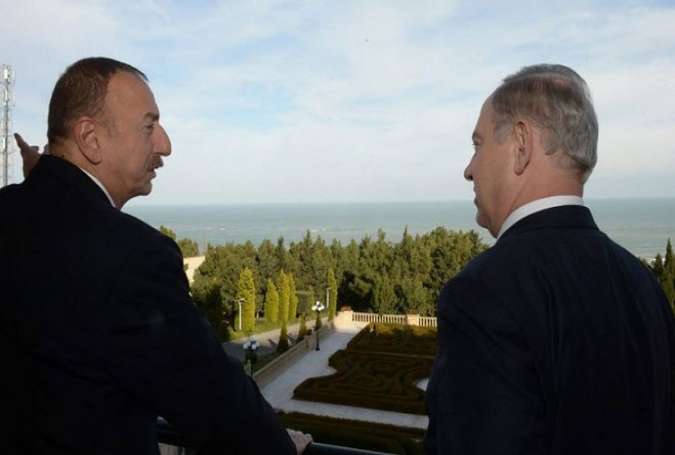Dr. Ahmad Kazemi, in an interview with the website of the Strategic Council on Foreign Relations, referred to the released news in connection with the plan of the Republic of Azerbaijan to build ‘smart villages’ in the liberated areas of that country and hand them over to the Zionist companies and said: The plan to set up smart villages and cities in the liberated areas of the Republic of Azerbaijan by the Israeli companies is a combined security-political-economic plan, which shows that the second Karabakh war has been a ‘project’.
He added: In this project, players such as the Zionist regime, by taking numerous concessions from the Republic of Azerbaijan in the field of land acquisition, the establishment of a military base and energy transfer, helped the country to liberate areas outside Karabakh from the Armenian occupation in order to be owned by the Zionist, Turkish and American companies.
The researcher on Eurasian affairs said that Russia is also trying to implement the ‘Kaliningrad’ extraterrestrial model in Karabakh as part of the deployment of peacekeepers, criticized Baku’s indifference towards Iran’s reasonable offer to attend the Peace Monitoring Center and participate in the reconstruction of the liberated areas.
Kazemi stated that the main focus of the smart villages plan is the integration of small agricultural lands under the pretext of transferring them to a large agricultural, irrigation, industrial and construction company for investment and said: By acquiring high quality agricultural lands from the main owners under the pretext of creating integrated fields for investment the motivation of the displaced to return to their ancestral homeland disappears.
Necessity to pay attention to sustainable peace plan
Referring to the consequences of this measure for the countries of the region, especially the espionage measures after the stationing of Mossad and other Israeli security and military institutions and the pursuit of conspiracies in the fields of ethnicity, espionage, sabotage and terrorism, he continued: To prevent the dangers of the presence of the Zionist regime in the Caucasus or Karabakh regions, which takes place in different instances and forms, Iran should emphasize the “sustainable peace plan” in the Caucasus, because the Caucasus is a region of conflict and in the past 30 years after the collapse of the Soviet Union, although different movements and plans have been proposed, no lasting peace has been established in the region.
Emphasizing that the 44-day war did not lead to the liberation of Karabakh or determining its legal status, Kazemi added: The way to counter the Zionist regime’s mischief in the region and basically prevent the interests of any player in the region is a ‘lasting peace plan.’ The Sustainable Peace Plan was mentioned in the remarks made by the Supreme Leader on 17 Rabi Al-Awwal (November 3) over the Karabakh issue, which is now referred to as the “Karabakh Top Discourse” or the “17 Rabi Discourse”.
Referring to the five axes of the plan, the expert on Caucasus affairs stressed the need to pay attention to such issues as respect for the territorial integrity of countries, the inviolability of international borders and awareness of any Takfiri activities, and said: When such a plan is implemented, it established lasting peace in the region and hinders the cross-sectional, utilitarian and profit-making movements of the Zionist regime and other opportunistic players.
Iran does not allow mischievous Takfiri-Israeli movement near its borders
Kazemi stressed that Iran, as it has announced, will not allow any movement of foreign forces or Takfiri groups near its borders. As a country that has a long border with the Caucasus and in the past has always supported the territorial integrity of the Caucasus countries, including the Republic of Azerbaijan, Iran has announced its readiness to participate in rebuilding the liberated areas of the Republic of Azerbaijan, in any way possible, in order to show its good neighborly and brotherly approach.
The international law expert pointed to the high engineering, scientific and civil engineering capacity of Iran and the proximity of the liberated areas of the Republic of Azerbaijan to Iran as an important economic advantage and added: This advantage also exists for the Republic of Azerbaijan as well. In the same occupied territories, the two countries had good records of cooperation in the implementation and construction of important economic projects, such as the “Khoda Afarin” Dam.
Israel’s goal, long-term presence in the Caucasus
Emphasizing that Israel’s target in the Caucasus and Azerbaijan is to be able to establish itself in the region for a long time and set up a base for the Zionists in the Caucasus, he added: That is why we see Israel pursues a multiple political, military, cultural, educational and even historical strategy in the Republic of Azerbaijan. The history of the Republic of Azerbaijan is falsified in such a way that the Khazar Jewish Empire is present in this region, and these are all distortions made by Israel in order to open a foothold for the Zionists in this region.
Kazemi added: Plans such as setting up smart villages and justifying public opinion for the illegitimate presence of the Zionist regime in this region are also carried out within the framework of the Zionist regime’s strategy to turn the Republic of Azerbaijan into one of the Israeli regional bases.










0 Comments